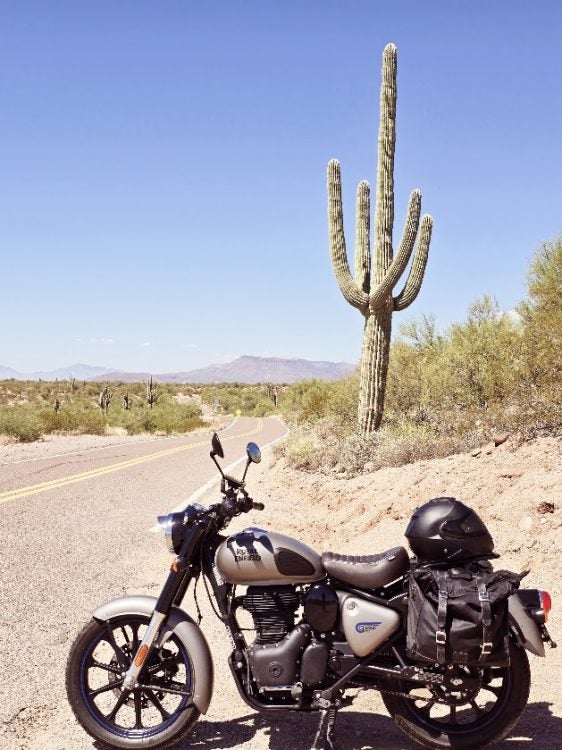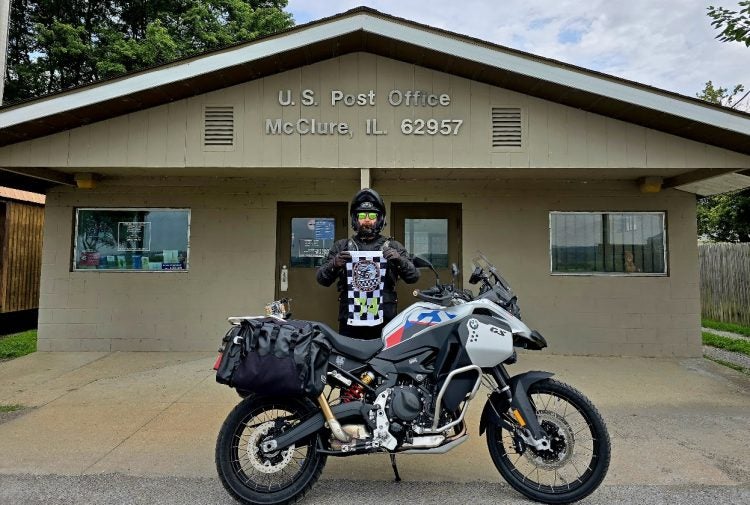Two machines, two approaches to the same journey – one shaped by the relentless pursuit of speed and innovation, the other by simplicity and timelessness. My BMW F900 GS Adventure, a symbol of power and modernity. My Royal Enfield Classic 350, a reminder of an era where less was more. Each draws us in, but for different reasons—each is a reflection of our world and our choices within it.
In Zen and the Art of Motorcycle Maintenance, Robert Pirsig speaks of the pursuit of Quality. He explores how we split our lives between the classical and the romantic. The classical mind thrives on precision, technology, control; the pursuit of perfection through science, engineering, and innovation. My BMW F900 GSA embodies this ideal. It is engineered to push boundaries, to be faster, smarter, stronger, safer. Always seeking the cutting edge, always moving forward.
There’s a thrill in that pursuit, a satisfaction that comes from harnessing and trying to tame the capabilities of a machine like this. You feel its power respond instantly, effortlessly. The rush is undeniable. The technology is confidence inspiring and entices you to push it to your own personal limits and beyond. But is it enough?
Got Muscle? The GSA does, and a lot of modern tech to boot. Photo: Christian Ensign
On the other side, there is the romantic approach. What if, in our pursuit of perfection, we lose something essential? What if the complexities of modern life create distance—not just between rider and machine, but between us and our own sense of purpose or connectedness? The more we chase, the more elusive satisfaction becomes.
The experience of the ride, not as a means to an end, but as an end in itself. The Classic 350… it asks for patience. It asks for presence. It doesn’t race ahead, it moves through the world slowly, deliberately, and in sync with you. At its pace, you begin to see things differently.

Exploring via the Royal Enfield means a different pace, and different discoveries. Photo: Christian Ensign
Pirsig reminds us that true Quality isn’t in the machine or its specifications—it’s in the care we bring to it. The connection between rider and machine becomes more than functional; it becomes personal, almost spiritual. When you work on the Classic 350, you aren’t just maintaining it, you’re engaging in something more profound. The maintenance itself is a meditation, a way of being.
But here’s the tension. The modern world celebrates technology. We value the pursuit of the next best thing—more power, more speed, more sophistication. And yet, as Pirsig suggests, sometimes in chasing perfection, we lose sight of something deeper. What if all this complexity distances us from what really matters?

In our quest for bigger, better, faster, have we lost sight of what really matters with motorcycling? In our lives, at large? Photo: Christian Ensign
On the Classic 350, the world slows down. The ride becomes more about the road than the destination. You start noticing things—the warmth of the sun, the subtle shifts in the wind, unfamiliar side-roads, landmarks, or the way the road bends and stretches in the distance as you ease towards it. You become part of the landscape, rather than rushing through it.
It’s easy to frame this as a battle – technology versus simplicity, speed versus slowness. But Pirsig’s philosophy teaches us it’s not about choosing one over the other. It’s about balance. It’s about finding Quality in both worlds—appreciating the precision of the modern, while never forgetting the value of the experience.
In the end, it’s about the relationship we cultivate with the machine, with the road, with ourselves. Whether it’s the complexity of the modern adventure bike or the simplicity of the Classic 350, the ride is an invitation to reflect: When is enough, enough? When do we stop chasing more and start finding joy in what is already here?

We can chase new things, but it is the experiences themselves, the things that happen to us when we’re on the bike, that matter. Photo: Christian Ensign
Adventure isn’t just in the power of the machine, the latest technology, or the newest bike the industry tells you you need to be happy. It’s in the choices we make about how we engage with the world, about what we prioritize. Maybe it’s not about the bike at all… but how the ride itself reshapes us.
Read More
4 Cheaper But Smaller Alternatives To The Cadillac Escalade
Why one of ASBK’s most high profile teams isn’t racing in 2025
